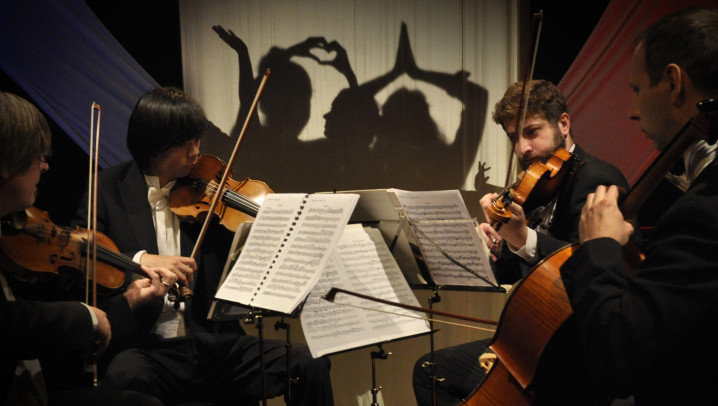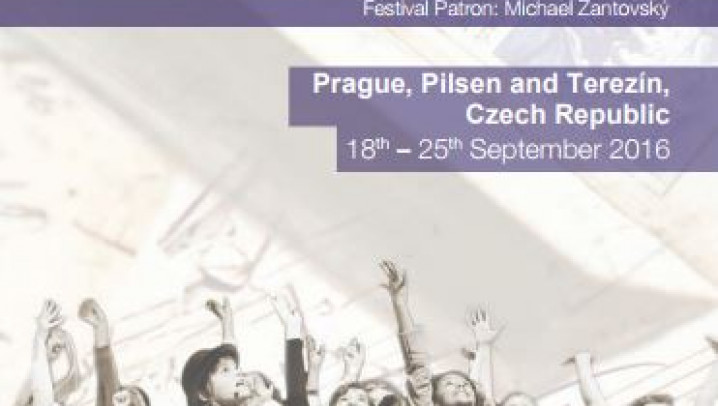
The Czech Musical Tradition: Persecution and Inspiration
Music by persecuted Jewish Czech composers, those who inspired them, and those influenced by them.
| Genre | Concert performance |
|---|
The Maisel Synagogue, Prague, 21 September 2016
(In association with the Jewish Museum in Prague)
PROGRAMME
GIDEON KLEIN (1919–1945) String Trio
EGON LEDEČ (1889–1944) Gavotte
DANIEL CHUDOVSKÝ (b. 1991) Mikva – a Collection (world premiere)
JOSEF SUK (1874–1935) Meditation on the St. Wenceslas Hymn, Op. 35
This concert juxtaposes significant Czech works by composers persecuted during World War II, and those who inspired them (including Suk’s Meditation), with the world premiere of a specially commissioned work, Mikva, by Prague--based composer Daniel Chudovský.
Though only 21 at the time, Gideon Klein (1919–1945) had already established himself as a highly-respected pianist in Prague at the time when he was transported to Terezin in 1941. In the camp, he became one of the most significant musicians there, performing concerts and composing a number of important works. His final composition, the Trio for Violin, Viola and Cello, was completed in September 1944, just ten days before his deportation to Auschwitz, and his eventual murder in the Fürstengrube sub-camp. In recent years, this work has established itself as an important contribution to the string trio repertoire.
Egon Ledeč (1889–1944) was associate concertmaster of the Czech Philharmonic Orchestra. A distinguished career as an orchestral musician and soloist was cut short with the German occupation. In 1941, Ledeč was transported from Prague to Terezin, and it was there that he played a pivotal role in live music-making. He composed a number of works, mainly light salon pieces, and the Gavotte was written in and performed in Terezin in December 1942.
Slovakian-born Daniel Chudovský (b.1991) ), writes the following about his new work Mikva – a Collection: "The piece is based on inspiration taken from the Jewish mikva bath which is used for the ritual cleansing of individuals or objects. This inspiration essentially touched me for several months due to the need to cleanse my musical language and my mind. That cleansing also includes a kind of retrospective view of the world around us – collection as an act of gathering or collection in the sense of a kind of loss."
Josef Suk (1874–1935), one time pupil, and later son-in-law, of Antonín Dvořák, is one of the most significant Czech composers. His deeply moving Meditation on the St. Wenceslas Hymn was composed in 1914, but later became something of an unofficial, yet heartfelt, national anthem of Czech nationhood during the German occupation.
(Photo shows composer Daniel Chudovský with the Fama Quartet)
| Composer | Daniel Chudovský |
| Festival Co-ordinator | Zdenka Kachlova |








